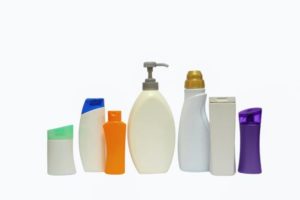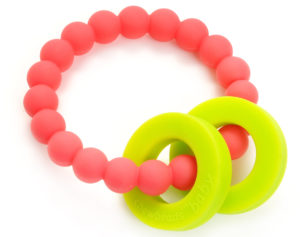 Think that BPA-free products are safe? Oops... it doesn't look like it. The most common replacement for the commonly used chemical compound BPA (bisphenol A) is BPS (bisphenol S). But it has become very clear that both are hormone disrupting chemicals with numerous and harmful health effects, especially reproductive disorders.
Think that BPA-free products are safe? Oops... it doesn't look like it. The most common replacement for the commonly used chemical compound BPA (bisphenol A) is BPS (bisphenol S). But it has become very clear that both are hormone disrupting chemicals with numerous and harmful health effects, especially reproductive disorders.
BPA and BPS are plasticizers used in products all around us, for example in food packaging containers, water bottles, baby bottles, can linings, toys, personal care products, cash receipts, dental sealants and on and on. Because it leaches out of products, BPA has been detected in the urine of nearly every person tested, as well as in breast milk, amniotic fluid, the placenta, and the blood of pregnant women (meaning it's getting to developing babies and causing effects).
Thus the desire for BPA-free products, and why industry has substituted chemically related BPS. But BPA-free doesn't mean it's safe or without problems if BPS or BPSIP (another chemically related substitute) are used. Similar chemicals often cause similar problems, which is what is happening. BPS is also being found in the urine of the great majority of people tested (which means humans are being widely exposed to it).
Research using BPS has been worrying - it actually seems to be worse for health than BPA. The latest research (by University Of Guelph researchers), which was conducted on mice, suggests that BPS has rapid effects (in a negative way) on heart functioning. Within minutes of exposure (at levels comparable to typical human exposure), heart function worsened, especially in female mice.
What can you do to lower exposure to hormone disruptors BPA and BPS? One can't avoid chemicals such as BPA and BPS totally, but you can definitely lower your exposure by taking the following steps (as much as possible). The good news is that BPA and BPS leave the body rapidly - so the goal should be to try to limit new exposure.
SOME STEPS FOR LOWERING EXPOSURE: 1) Assume that a "BPA-free" product is using similar hormone disruptors (such as BPS) and so avoid it. 2) Buy and store food in glass or stainless steel containers (and not in plastic containers). 3) Use ceramic or glass plates in the microwave. Don't use any sort of plastic containers or pouches in the microwave. 4) Use fragrance-free products. Avoid products with fragrances in them, including air fresheners, scented candles, detergents, dryer sheets, and personal care products. 5) Avoid flexible vinyl (e.g. shower curtains - use cloth shower curtains and liners instead), 6) Use glass baby bottles, and 6) Wash hands before eating (everything gets on the hands!).
From Medical Xpress: BPA replacement hinders heart function, study reveals ...continue reading "Is the Replacement For BPA Even Worse?"

 Uh oh....A recent study found that every baby teether tested (and they tested 59 teethers), including all those labeled "BPA free", leached various parabens, bisphenols (including BPA or bisphenol A), and other endocrine disrupting chemicals. Infants chew and suck teethers to soothe the pain from their teeth emerging in the first year of life.
Uh oh....A recent study found that every baby teether tested (and they tested 59 teethers), including all those labeled "BPA free", leached various parabens, bisphenols (including BPA or bisphenol A), and other endocrine disrupting chemicals. Infants chew and suck teethers to soothe the pain from their teeth emerging in the first year of life.